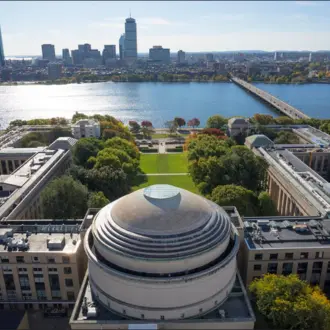“The operations of most enterprises and organizations during normal times are designed to address many sources of uncertainty,” says Retsef Levi, the J. Spencer Standish (1945) Professor of Management at MIT Sloan and codirector of the Leaders for Global Operations (LGO) program. “Airlines, for example, have plans to address weather uncertainty, and hospitals are prepared to handle variable loads on their emergency departments.” Levi explains that operating schemes of enterprises across many industries and sectors such as retail, healthcare, transportation, construction, and energy all have underlying assumptions when it comes to which factors of uncertainty are likely to occur.
When organizations experience a shock to the system as in the current pandemic, however, many of those assumptions no longer hold. “This is what we call irregular operation (IROP) conditions,” Levi says. “Being ready to handle IROPs is critical to being resilient. ” He notes that the unprecedented nature of COVID-19 is upending operations with atypical breadth and speed. “This crisis is distinct among most IROP events because it is affecting the entire world simultaneously—including demand and supply. COVID-19 has turned the global supply chain for personal protective equipment (PPE)upside down, compromising many supply sources and, at the same time, dramatically increasing global demand.Everyone is affected in some way.”
The need for new playbooks
Successful leadership during this crisis requires three attributes that, in Levi’s view, most leaders lack today. “You must have the ability to execute and to understand operational execution at a considerable level of detail. Without that knowledge, you are at a disadvantage in trying to invent ways of operating and executing under new and fundamentally different operating conditions,” he says.
Closely related to the ability to execute is optimism, Levi believes. ”If you are not optimistic, you won’t be able to weather the storm and keep working until you find a new direction. You must be able to instill hope in people that these new challenges can be overcome. That’s why optimism and execution must go hand in hand. If you are not executing, the people you are trying to lead will lose hope no matter how much optimism you project.”
The choices we don’t want to make
The third element Levi sees as essential to leading during the pandemic is establishing a very clear set of priorities that enables people to understand the potential tradeoffs that must be considered. “For most of us,” he notes, “having to choose between privacy and public health, personal freedom and reasonable compliance, hunger and death, is unchartered territory. In Western cultures, we do not like to make such decisions. By not choosing, however, we have made our choices, and the probable outcomes are worse on multiple levels.”
The key, says Levi, is being able to make informed choices based on data. “I wish we could just start making sense,” says Levi. “When we seek and share and continue to gather good data, we can have much more productive conversations about the choices before us. With solid data, being good at execution and optimism is that much easier.”
On the leadership frontier, Levi sees the current crisis as a proof-of-concept for the MIT Sloan School of Management. “We are one of the few management schools that builds its curriculum around these three elements. Our mission is driven by an optimistic vision for human progress. We are all about execution and inventing new ways to operate in the world. And appreciating the value of good data is part of our MIT DNA. Now, it comes down to teamwork. It’s too soon to declare success in the effort to reopen MIT, but we won’t fail for lack of effort. Many people on dozens of teams have been working around the clock to make this happen. In my experience, great teams never give up and always find a way to win.”



